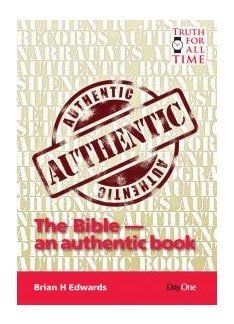This book is mainly an apologetic for the Bible itself. Edwards previously co-authored the large, glossy, coffee table book, Evidence for the Bible.
This smaller book is good value for money. Its approach is pastoral and there is little overlap in material when comparing the two books. Edwards wants everyone to take the Bible seriously as a set of historical documents, and then go on to study it regularly, systematically and prayerfully. The inclusion of a year’s Bible reading programme reflects this.
The first two sections argue for the authenticity of Old and New Testaments. They are shown to correlate with history from non-biblical sources. These sections also appeal to internal evidence in the canonical books themselves.
Anyone who reads the first 101 pages containing those two sections will have got more than their £8’s worth, whether a new believer, sceptic, or someone simply concerned by attacks on the Bible in the media or academic world.
The next three sections provide an outline of the Old and New Testaments, attaching dates to major events, prophets and books. However, a Bible expert will already have access to such dates in his commentaries, and there is not really enough information to properly introduce each book to a Bible novice.
Part 4 covers the Holy Week dates and times. Edwards bases these on Colin Humphreys’ book, The mystery of the last supper, where the ‘last supper’ is dated to Wednesday evening of 1April, 33 AD. The final part focuses mainly on prayer; this section could have been more biblical.
In summary, the first half of this book is useful, accessible Bible apologetics, but I wonder how useful the second half will prove.
David Legg
Lee Mill, Devon







